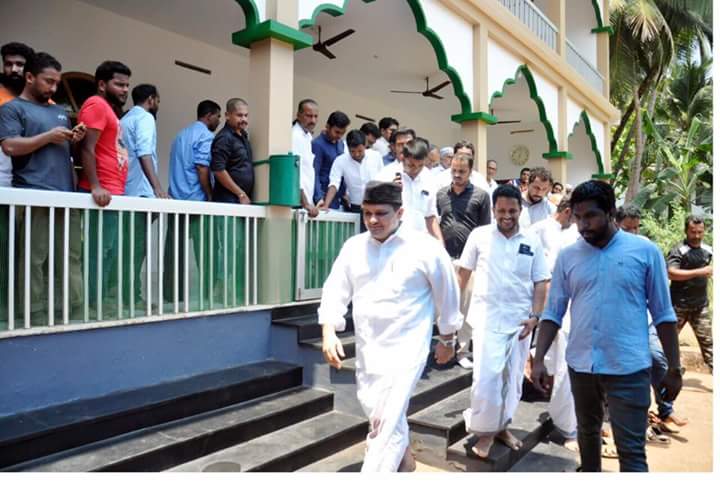By Shafeeq Hudawi, Twocircles.net
The murder of an Imam in Kasargod and the subsequent arrests of three BJP activists has once again highlighted the growing attempts by the Sangh Parivar to disturb the communal harmony in the region.
Riyas Moulavi, a 34-year-old Moulvi who had been teaching at Issathul Islam Madrasa in Choori for nine years, was found murdered with his throat slit in his room adjacent to Muhyudheen mosque at Choori on March 20. Three persons, S Ajesh (20), N Akhilesh (25) and S Nithin (19) were arrested on March 24. The police confirmed the link of the trio with BJP and said the Riyas was the victim of hate crime.

It is no coincidence that Choori, which falls under the Madhoor Panchayat, which is one of the few places that the BJP has seized power.
“Riyas was a stranger to the accused, and the crime was apparently committed because of communal hate.I don’t see any other reason,” Kannur Crime Branch Superintendent of Police A Srinivas told local media. Srinivas is the head of the special team which investigated the murder.
Choori is swiftly turning into a communal cauldron, mainly due to the BJP’s efforts to reap from the communal polarisation, laxity of police and flow of anti-social elements from outside the panchayat. The perception has been rekindled by the latest of the communal murder series. The Muslim-majority locality surrounded by areas with Hindu majority has been witnessing a surge of minor clashes after 2005. In 2009, a Muslim youth Rishad was murdered by RSS activists while another youth Sabith was stabbed to death in 2013 in the locality.
Choori saw an increase in Muslim population following the migration from Muslim strongholds like Thalangara, Nellikkunnu, and Thuruthi in Kasargod. “Middle-class families can’t afford the land price in these areas. So families started moving here during the 90s in search a more affordable place,” says Abid Basha Muhammed, a Choori resident whose family shifted to the locality from Nellikkunnu.

According to residents here, all was well till the early 2000s, after which the Sangh Parivar deliberately created panic taking a cue from Karnataka’s Mangalore, where BJP rose to power by practicing communal politics.
Other political parties also said that BJP resorts to the politics of hatred eyeing the consolidation of Hindu votes in the panchayat.
In Madhoor panchayat, BJP, the ruling party has a lion’s share of panchayat members. United Democratic Front (UDF) won only four seats while BJP bagged 16 seats. “Hindu votes are being swiftly consolidated by BJP. Congress and CPI (M) have almost lost their hold among Hindus here,” says IUML functionary Ashkar Choori.
“No doubt Sangh Parivar is trying to reap political benefits by creating communal riots. They want retaliation from their rivals and take benefits of the bloodshed politics. But their expectation failed to take off as Muslim organisations raised to the occasion by calling for efforts to restore peace,” says Social Democratic Party of India (SDPI) Kasargod constituency secretary Kader Arafa.
Lack of Police action is encouraging the culprits
Activists say that the Police action has often been far from encouraging and that this makes it easier for culprits to get bail or acquittal. “Take the Rashid case for example. The charge sheets filed by the police in Rishad’s case had so many loopholes that the accused found it easy to get an acquittal,” said Kader Arafa.

Advocate C Shukoor of IUML says that the police ignored the complaint by local political leaders against suspects of Riyas’ murder case. “A few days ago, two suspects of the case Ajesh and Nidhin had threatened the mob by raising a sword during a local badminton tournament. A complaint was issued by the local politicians. But police ignored it,” he said.
Besides, according to Kader, assailants are treated like heroes in BJP strongholds. “The suspects of former cases were accorded royal welcome and they have got new vehicles. BJP is promoting this culture. Unfortunately, the police have not initiated any probe into this kind of deeds,” he said.
The reluctance of police to impose strong charges against the culprits also come under heavy criticism.
“Complaints are pouring against police alleging laxity. No probe is initiated into the conspiracy behind these heinous crimes. IUML leaders have demanded the police impose UAPA on the suspects and look into the conspiracy,” Shukoor said.


